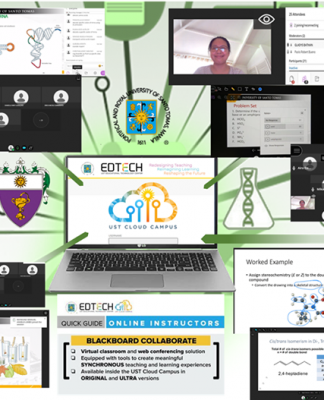THOMASIANS think “faith in God and adherence to Catholic teachings” are not necessary to become morally upright, suggesting that the Church “no longer has the ultimate voice” when it comes to moral issues such as artificial birth control and pre-marital sex, according to a University-wide survey.
Still, Thomasians were still regarded as “highly religious.”
“The Thomasian and his religion” survey conducted last October by former Arts and Letters dean Armando de Jesus showed that one in three Thomasian respondents believe there is nothing wrong with using birth control pills and having pre-marital sex “between partners who truly love each other,” contradicting the Church’s “pro-life” stance.
A total of 3,677 Thomasians aged 15 and 23 years old from the University’s 13 faculties and colleges were surveyed. Of these, 88 percent have attended early education in Catholic schools.
While educated by Catholic institutions, six in 10 Thomasians think it is “not necessary to believe in God to be moral.”
“The length of stay in a Catholic school does not count that much as far as religiosity is concerned,” De Jesus said.
He said there seemed to be a “privatization of religion,” where the youth tend to rely on their own judgment to interpret moral issues instead of conforming to Church teachings or seeking parental guidance.
“The family and school, long assumed to be the prime channels for education in religious and moral values, seemed to have taken a back seat,” the survey claimed. “The virtual world (Internet and media) have taken [their] places as main sources of ideas and values.”
But family still has a huge role to play in a child’s religiosity, the study showed.
Having only a single parent seemed to have a negative effect on moral behavior and adherence to religious beliefs and practices.
More than half of respondents with single parent (60.7 percent) adhere to the “doctrines of Catholic faith,” but only 21.9 percent and 34.2 percent follow the moral teachings of the Church and believe God, respectively.
Twenty percent were also certain that “there is nothing wrong with using birth control pills” and “euthanasia is justifiable if the person has a disease that cannot be cured.”
Almost all the respondents (81 percent) attend religious service “once in a while” or “at least once a week,” while six in every 10 Thomasians pray at least “once daily.”
Two in 10 say prayer “once in a while.”
UST Institute of Religion Director Fr. Filemon de la Cruz Jr., O.P., agreed with the study’s findings, noting that “the youth today is still in the process of understanding their sexuality.”
“Among the three indicators of religiosity [religious practices, adherence to Catholic teachings, moral behavior], observing religious practices is the easiest thing to learn because we adapt to it,” De la Cruz said. “Moral maturity would take a lifetime to learn.”
He added that “modern technology brings new issues. I think the youth are not yet well-informed about these moral issues.”
“A person is morally mature if he is able to make a sound judgment about an issue. You can follow moral teachings of the Church, but it doesn’t make you morally mature,” De la Cruz said.
De la Cruz also stressed that the school plays a crucial role in the formation of a child’s view of his religion, but “it is not everything.”
“We can reinforce what is already there. It depends on how open you are. We can supplement what is lacking, but it also depends on how open you are,” he added.
Based on a recent study by the University of the Philippines Population Institute in 2008 titled “Young Adult Fertility Survey 3,” more than four million young Filipinos have already engaged in sexual practices.
A total of 4.32 million Filipinos aged 15 to 24 years are already sexually active. Among them, 20 percent use contraceptives.
De Jesus suggested “program emphasis on promoting self-understanding” and “programs that exploit the benefits of religious schooling and family involvement” as helpful tools to encourage youth participation in their religion.
“There is no escaping the forces of social and cultural change. Religion, being an integral part of the socio-cultural system, cannot be expected to remain unmodified as the other parts of the system change,” the study stated.
“Moral maturity takes more than simple instructions, sometimes it comes from experience,” De la Cruz said.















